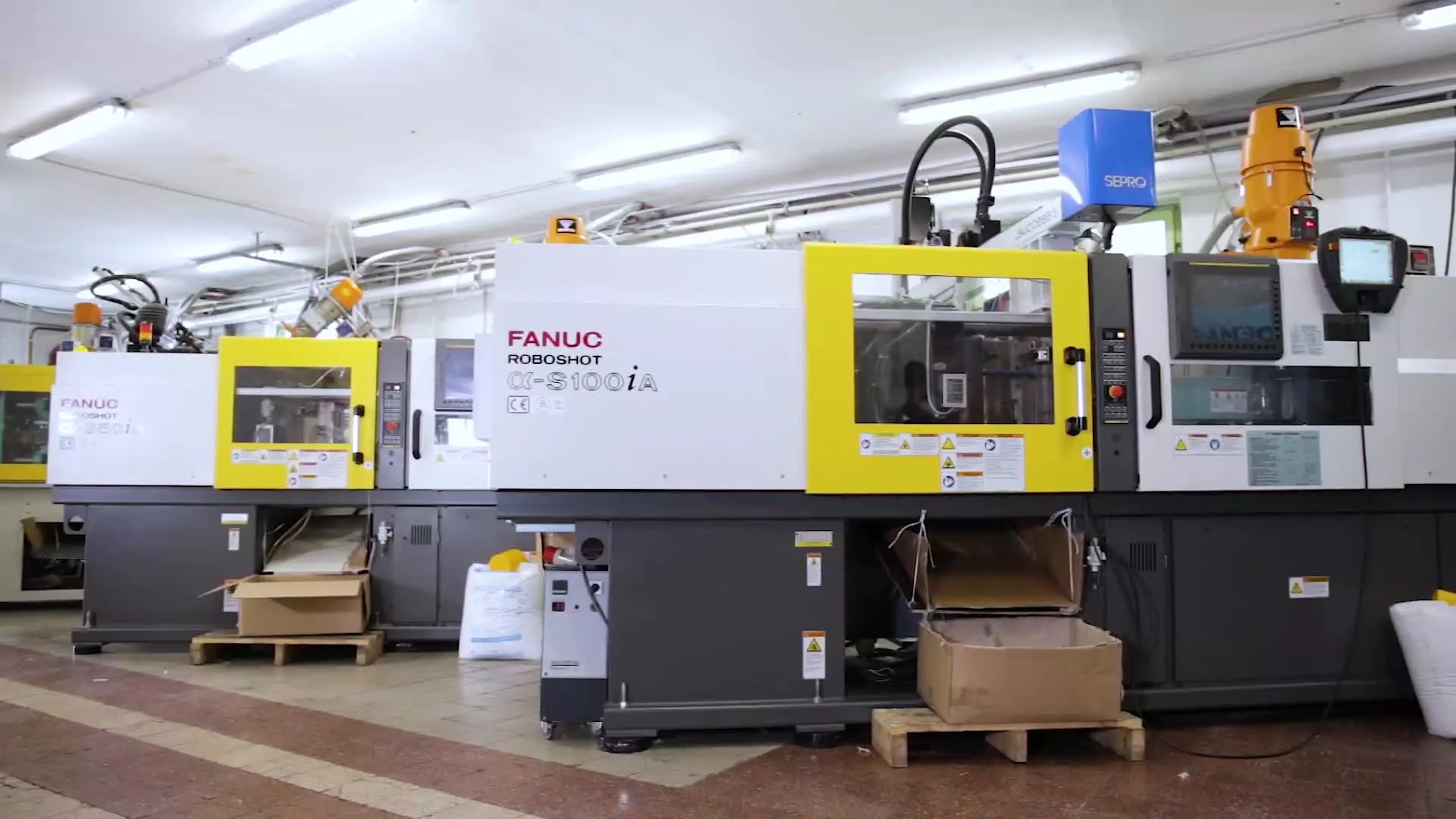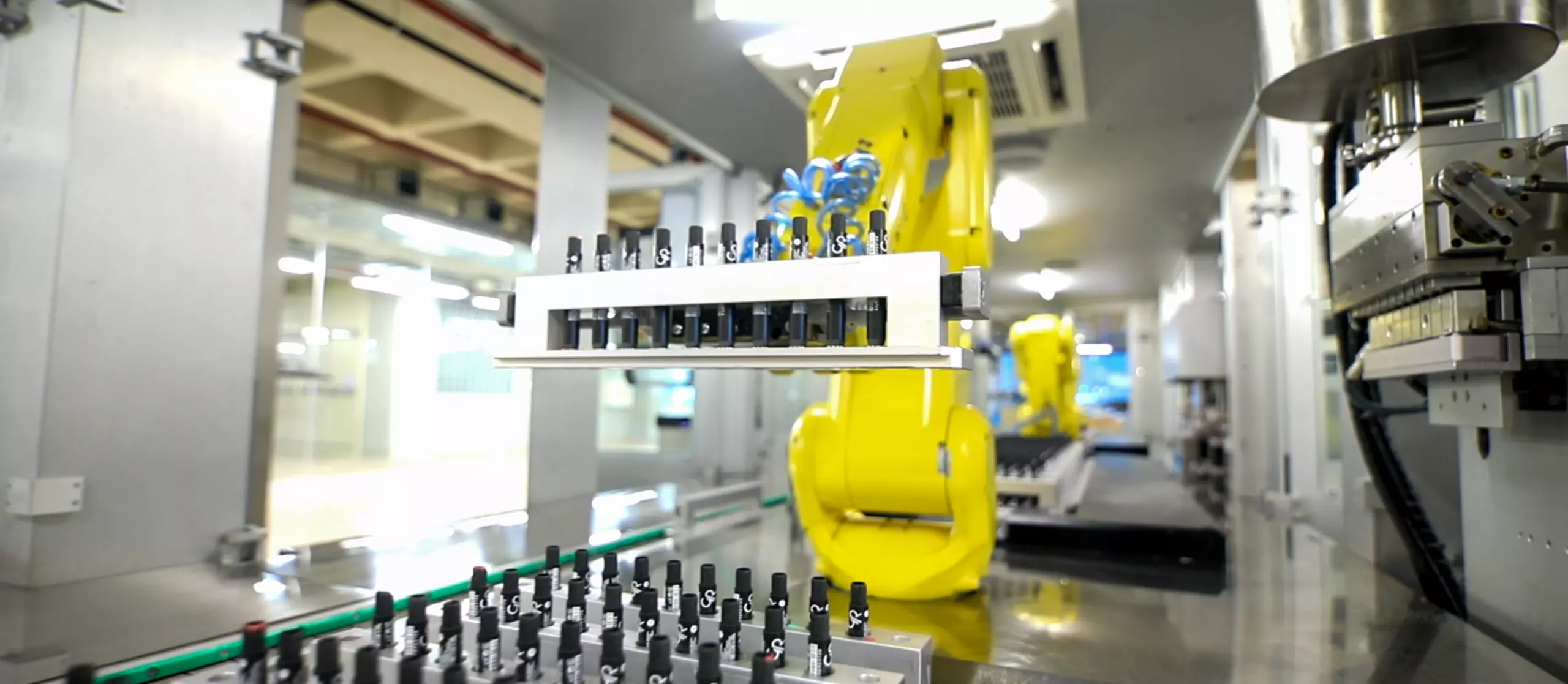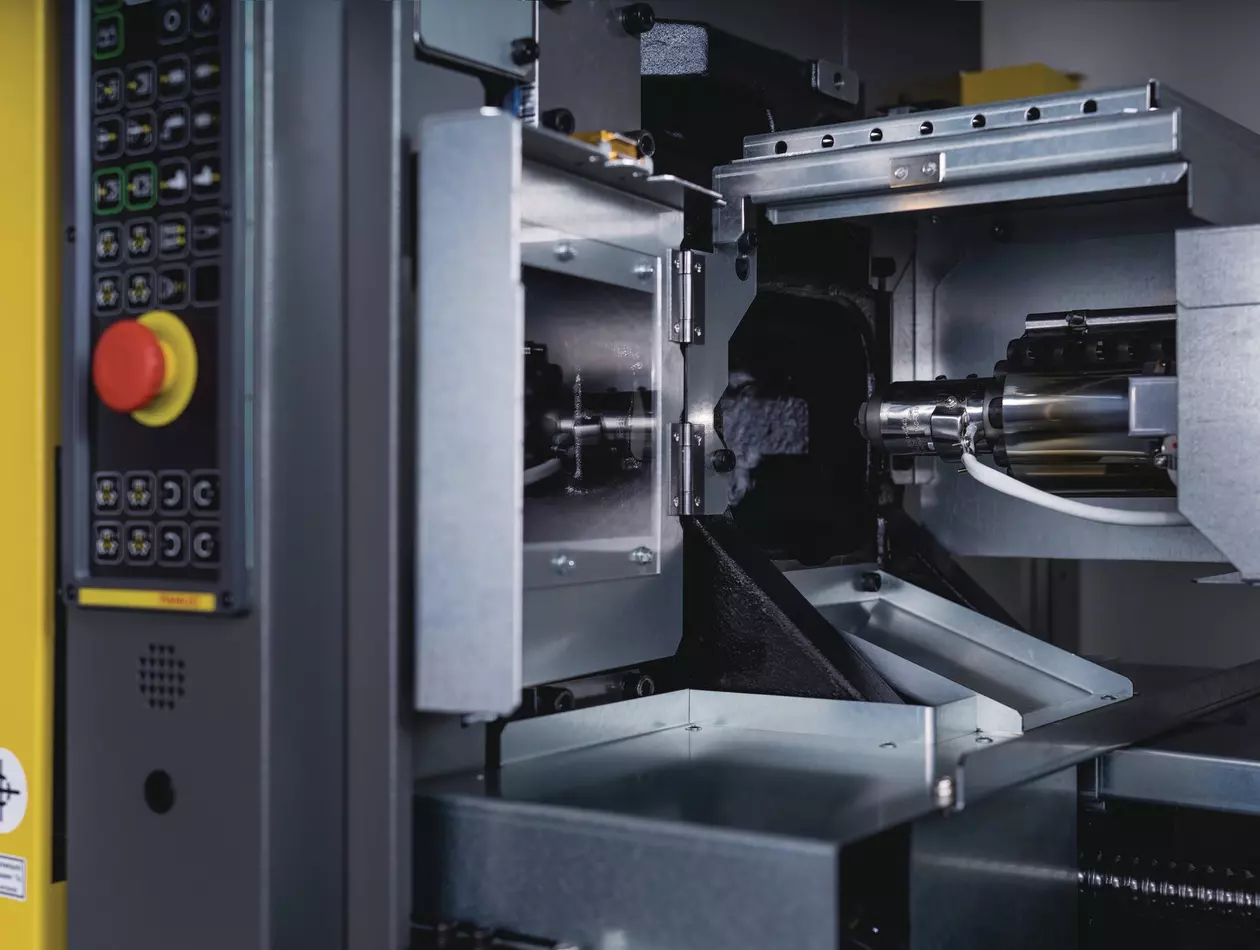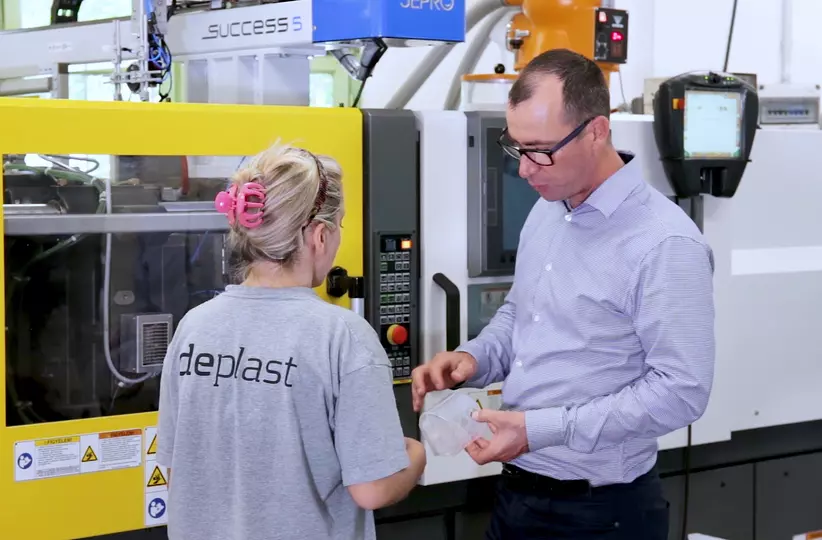
- Europe
- FANUC Europe
- Albania
- Andorra
- Austria
- Belgium
- Bosnia and Herzegowina
- Bulgaria
- Croatia
- Cyprus
- Czech Republic
- Denmark
- Estonia
- Finland
- France
- Germany
- Greece
- Hungary
- Iceland
- Ireland
- Israel
- Italy
- Kosovo
- Latvia
- Liechtenstein
- Lithuania
- Luxembourg
- Malta
- Moldova
- Montenegro
- Netherlands
- North Macedonia
- Norway
- Poland
- Portugal
- Romania
- San Marino
- Serbia
- Slovakia
- Slovenia
- Spain
- Sweden
- Switzerland
- Turkey
- Ukraine
- United Kingdom
- Vatican
- Americas
- USA
- Africa
- Algeria
- Egypt
- Morocco
- Tunisia
- Asia
- Armenia
- Azerbaijan
- Georgia
- Kazakhstan
- Kyrgyzstan
- Tajikstan
- Turkmenistan
- Uzbekistan
Deplast
FANUC Machines are Hot-shot Performers at Injection Moulder
The plastics industry is under pressure to enhance its sustainability. Here, FANUC ROBOSHOT all-electric injection moulding machines are proving an increasingly popular and proactive way for plastic product OEMs and contract moulding shops to reduce their energy consumption, drive down bills and minimise carbon footprint.


FANUC ROBOSHOT all-electric injection moulding machines support eco-conscious approach at Deplast.

ROBOSHOT machines consume up to 70% less than comparable hydraulic injection moulding machines.

Deplast’s own measurement confirm energy efficiency of ROBOSHOT machines.

Deplast praises FANUC’s proactive support.
Get Inspired

FANUC Case Studies
Explore our comprehensive range of factory automation solutions, showcased in detailed case studies, and designed to optimise and streamline any manufacturing process.

Injection Moulding
Injection moulding is a highly efficient manufacturing process that enables the production of complex, high-quality plastic components with precision and consistency. Utilising advanced automation and robotics, this technology is essential for industries requiring large-scale production, ensuring cost-effective solutions without compromising on the integrity or performance of the final product.











